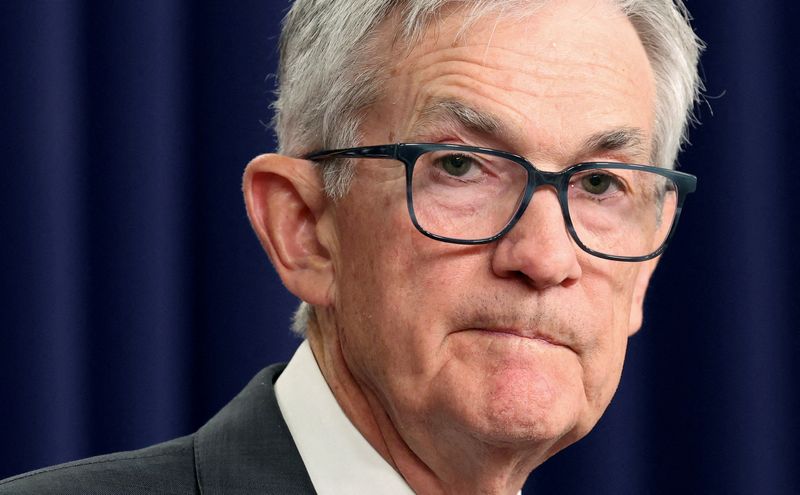
By Davide Barbuscia and Saqib Iqbal Ahmed
NEW YORK (Reuters) – Surprisingly strong U.S. inflation in January stoked investor fears that a heating economy and looming tariffs could corner the Federal Reserve, undercutting interest rate-cut hopes and even raising the threat of a hike.
U.S. consumer prices increased more than expected in January, reinforcing expectations the central bank will be in no rush to resume cutting interest rates, particularly as economic uncertainty is exacerbated by the expected inflationary impact of U.S. President Donald Trump’s tariffs on key U.S. trade partners.
Fed Chair Jerome Powell said in congressional testimony this week that the Fed was prepared to keep rates unchanged until inflation resumes its decline. But the hot inflation reading will likely complicate investors’ efforts to game out when it may cut rates again, with some even starting to voice concerns that its next move may be a hike to contain price pressures, a shift that would rattle markets.
“We have to get comfortable with this idea that inflation is sticky at a higher level than what we were used to in the past,” said Erik Aarts, senior fixed income strategist at Touchstone Investments.
Aarts said he planned to maintain a slight “underweight” position on Treasuries, which rise in value when interest rates are set to decline. He remained bullish on corporate bonds, however, on expectations of continued economic strength.
Interest rate future traders were betting on only one 25 basis point rate cut by the Fed later this year after the inflation data, down from about 36 basis points of expected easing in 2025 ahead of the release. Benchmark 10-year U.S. Treasury yields, which reflect economic growth and inflation expectations, surged over 10 basis points and were last at 4.65%, their highest in almost three weeks.
The benchmark S&P 500 stock index fell on Wednesday, as the inflation data upended expectations of broad support for equities from less restrictive monetary policy.
“Our base case was slowing growth, slowing inflation,” said Jack Ablin, chief investment officer at Cresset Capital.
The possibility of rates staying high longer than expected meant large companies with big cash flows could become more attractive, while it could stop an investor shift away from the so-called Magnificent Seven technology stocks into the broader market.
“I’d love to see that broadening, but I think this is really a setback to that trend,” Ablin said.
TARIFFS BACKDROP
Trump’s protectionist policies exacerbated market fears of a sustained rebound in inflation, as he imposed a 10% additional tariff on Chinese goods while suspending 25% levies on goods from Canada and Mexico until March.

